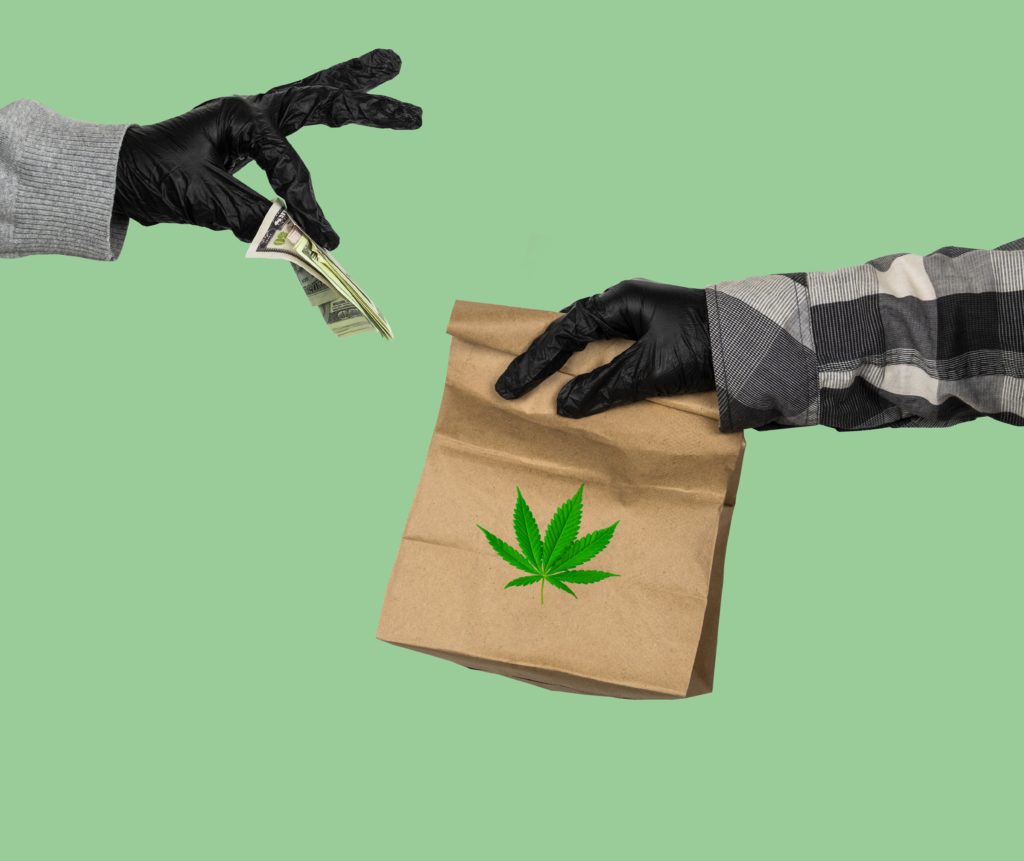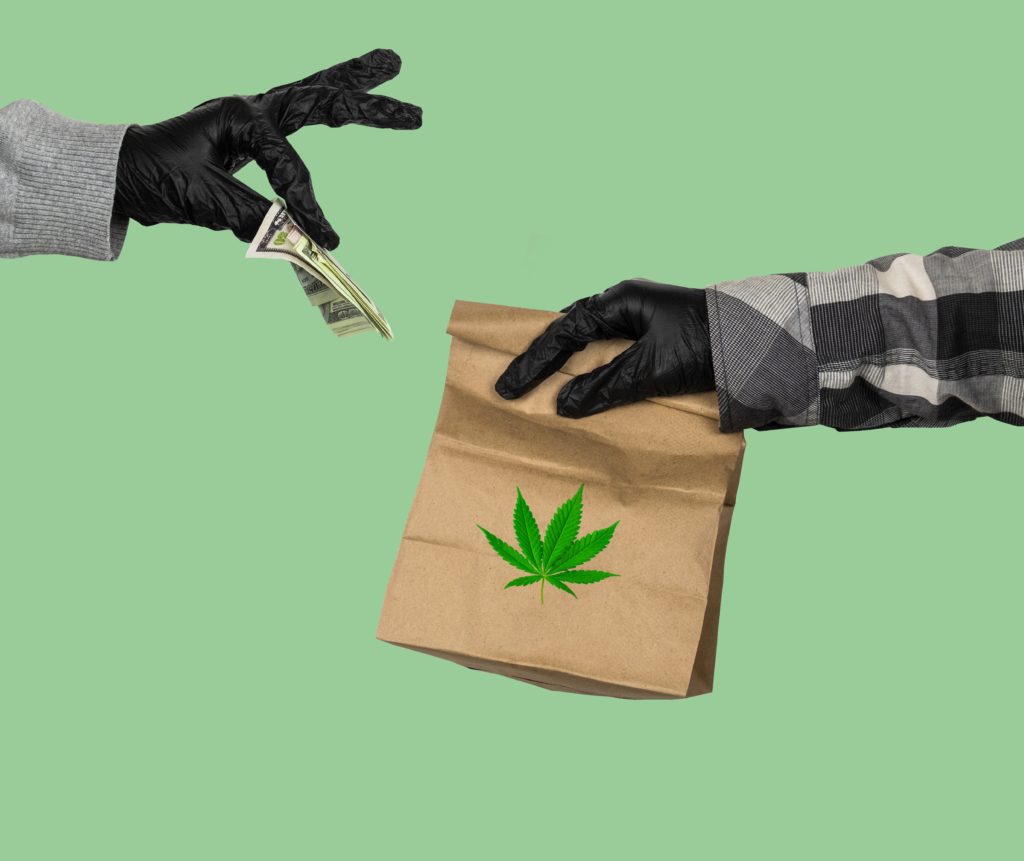Is it a Crime to Work at a Marijuana Dispensary?


What is a Marijuana Dispensary?
A marijuana dispensary serves as a storefront operation that sells marijuana to customers. The operators of these dispensaries sometimes require customers to provide medical documentation, while at other times, there is no such requirement.
Are Dispensaries Legal?
Despite pending legislation aimed at legalizing recreational marijuana use in Canada, dispensaries currently remain illegal. The Controlled Drugs and Substances Act prohibits the sale of marijuana outside of the federal medical marijuana program, which supplies marijuana via mail to 20 licensed producers. Most marijuana dispensaries, due to their illicit nature, have illegally obtained or grown the marijuana they sell. Furthermore, it is important to note that marijuana clinics are not licensed by Health Canada.
Is it a Crime to Work at a Marijuana Dispensary?
Working at a marijuana dispensary is a crime until Bill C-45, often referred to as the Cannabis Act, is passed. This proposed legislation would legalize the possession, consumption, and growth of limited amounts of marijuana. Under the current Controlled Drugs and Substances Act, marijuana is classified as a Schedule II drug.
Any trafficking of this drug, including the selling, administering, giving, transferring, transporting, sending, or delivering of marijuana to a customer is considered an indictable offence. This offence could result in a fine and/or imprisonment. Even offering to sell marijuana without completing the transaction is classified as trafficking.
Trafficking of Marijuana According to the Controlled Drugs and Substances Act
According to Chapter 19 of the Controlled Drugs and Substances Act, no person should traffic in a substance found in Schedules I, II, III, or IV, or any substance that person represents or offers as such a substance.
This legal provision applies to the trafficking of marijuana.
What Are the Potential Penalties of Being Charged with Trafficking for Working at a Marijuana Dispensary?
As dispensaries operate illegally, they can be raided by police who may charge and/or arrest employees. When determining whether to prosecute dispensary employees, the Crown takes into account if there’s a “reasonable prospect of conviction” and if the sentence would “best serve the public interest”. The Crown may consider the nature and seriousness of the offence as well as the need to deter similar crimes in the community when assessing if the sentence would serve the public interest.
Offences Involving Schedule I or II Substances
According to Chapter 19 of the Controlled Drugs and Substances Act, anyone who violates subsection (1) or (2) and the subject matter of the offence is a Schedule I or II substance, is guilty of an indictable offence and could be liable to life imprisonment. If the offence involves a Schedule II substance in an amount that doesn’t exceed the amount set out for that substance in Schedule VII, the person is still guilty of an indictable offence and could face up to five years less a day of imprisonment.
Summary Conviction for Schedule II Offences
If the offence involves a Schedule II substance in an amount that doesn’t exceed the amount set in Schedule VIII, the person is guilty of an offence punishable on summary conviction and may face a fine not exceeding one thousand dollars or imprisonment for a term not exceeding six months, or both.
Mandatory Minimums for Trafficking Offences
Furthermore, Schedule II drugs, such as marijuana, carry a mandatory minimum of one-year imprisonment for trafficking offences with aggravating factors such as offending for the benefit of, at the direction of, or in association with a criminal organization; using or threatening violence; using or threatening the use of weapons; previous convictions of a designated substance offence or serving a term of imprisonment for such an offence within the past ten years; or committing the crime through abuse of authority or position, or abusing access to a restricted area, specifically for carrying out importation/exportation or possession to export.
On top of this, there is a mandatory minimum of two years imprisonment for trafficking offences involving certain aggravating factors. These factors include operating in or near a school, on or near the grounds of a school, or in or near an area typically frequented by individuals under the age of 18; operating in a prison; using the services of, or involving, a person under 18, or acting in relation to a youth (example, selling to a youth).
Peace Bonds for Dispensary Employees
It is not uncommon for the Crown to agree to a peace bond for a dispensary employee charged with drug trafficking. This peace bond, typically used for lower-level criminal charges such as shoplifting, assault, threatening, or committing mischief, requires the individual to agree to “keep the peace and be of good behaviour”. Breaching the conditions of the peace bond can result in additional criminal charges. For dispensary employees, this peace bond can lead to severe consequences, such as prohibiting them from continuing their work at the marijuana clinic. Such a restriction can result in loss of full-time employment and primary sources of income.
Potential Criminal Defences
If you are a dispensary employee charged with drug trafficking, it is critically important to contact an experienced criminal defence attorney. There are defences available to you. With experienced representation, we can form a compelling narrative about the medicinal therapeutic effects of marijuana.
An attorney with less experience may not be able to do this as effectively. It’s important to note that for you to be convicted of drug trafficking or any other criminal offence, the Crown must prove the allegations against you beyond a reasonable doubt.

Jonathan Pyzer, B.A., L.L.B., is an experienced criminal defence lawyer and distinguished alumnus of McGill University and the University of Western Ontario. As the founder of Pyzer Criminal Lawyers, he brings over two decades of experience to his practice, having successfully represented hundreds of clients facing criminal charges throughout Toronto.




